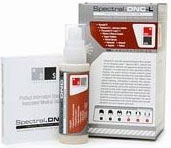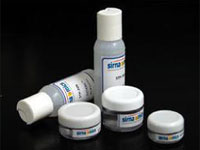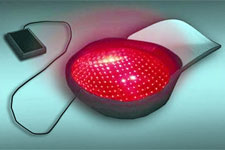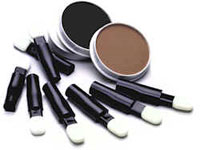Hello. I have been balding for around 4 years (started when i was 17 unfortunately) and I have searched for solutions for my hair loss endlessly to no reward. I have used multiple shampoos, different types of minoxidil (spectra-DNC and more recently rogaine foam- had to stop rogaine foam because it seemed as if i was shedding ridiculous amounts for way to long ~1 month) and still nothing.
I feel like have no where else to go besides into the realm of anti-hormone therapy. By that I mean finasteride (propecia) or Saw Palmetto pills. My question now is, is the herbal route (saw palmetto) that much different than the pharmaceutical route (finasteride)? They both inhibit 5-alpha reductase leading to lower levels of DHT so what makes one drug better than the other?
Another question I had was, after testosterone is inhibited from becoming DHT, what happens with the extra testosterone? Does aromatase convert it to estrogen (–> leading to gynecomastia)? Does it have the same effect as steroids whereby exogenous testosterone leads to smaller testicles and decreased sperm count?
Thank you.
For starters, peer-reviewed clinical studies about saw palmetto as a DHT blocker do not exist, making it difficult to make any comparison. It’s a catch 22, I know — it’s a natural herb so it won’t be able to have any patent protection, thus no company will put up the funding to get a good study done. Still, Propecia (finasteride) does have such studies, meaning there is real data to look at and make judgments on. If you don’t want to go the pharma route and would rather go with saw palmetto, that is entirely up to you. I don’t think the results will be there with saw palmetto, however.
Much of what you state has bits of truth to it, but it’s not a complete picture nor is it really helping you understand things. Hormonal pathways are very complicated and you cannot narrow things down to explain things to suit your needs. I am not going to explain all the biochemical pathway of testosterone to DHT to aromatase, etc. It’s a bit too abstract for this site, and honestly I don’t want to teach a course in college biochemistry.
So lets start from the beginning… and by that I mean, what are your goals? If your goal is to find a cure for hair loss, then you will not find it. There is no cure for hair loss. If your goal is to slow down male pattern hair loss then the only thing that I know of that really works is finasteride and topical minoxidil. These medications do not stop hair loss per se, but will help slow down the loss before your genetic predisposition eventually wins over (this could be many years). Everyone responds to the medication differently, and ALL medication have side effects.
Propecia’s side effects have be beaten to death on various web forums, much of it being false or blown out of proportion. Take note, Propecia is not the only medication that has side effects. Just look up any common medication on the Internet and I am sure you will find loads of false (as well as true) information and their horror stories. My guess is that Propecia is a sensitive topic to most, because words such as “erectile dysfunction” and “decreased libido” are key issues for any male patient. If you look up medications like Prozac or drugs used to treat high blood pressure, you will also find “erectile dysfunction” as one of the many side effects.
The patients who are considering Propecia should be aware that side effects exist, but in reality (from my personal medical practice with actual patients I see at my office) the incidence of “erectile dysfunction” is as stated in the medical literature — 1 to 2%. Those patients with these issues can stop the medication and the side effects reverse within a week. The incidence of gynecomastia is about 1 in 300 to 1 in 500 (I am not sure of the exact published number), but I only remember one patient reporting sensitive breasts about 3 years ago. He stopped the medication and he was fine afterward.
One last thing I wanted to point out — Propecia does not give you small testicles or decreased sperm count.

 I’m actually in Boston at the
I’m actually in Boston at the  I’m not sure what to think of Renokin. It’s a new product that consists of three steps (shampoo, conditioner, spray) and claims to regrow hair. I’ve seen so many that follow this same structure of outlandish claims, little evidence, and nobody taking these to task. Whether it works or not, I couldn’t say. I’ve got no experience with it and it is apparently quite new to market. The product is being sold as a cosmetic, not a medication, so there are less legal boundaries that the company needs to deal with when selling it. In other words, they aren’t under the strict guidelines that a drug company must fall under to prove the product does what it says.
I’m not sure what to think of Renokin. It’s a new product that consists of three steps (shampoo, conditioner, spray) and claims to regrow hair. I’ve seen so many that follow this same structure of outlandish claims, little evidence, and nobody taking these to task. Whether it works or not, I couldn’t say. I’ve got no experience with it and it is apparently quite new to market. The product is being sold as a cosmetic, not a medication, so there are less legal boundaries that the company needs to deal with when selling it. In other words, they aren’t under the strict guidelines that a drug company must fall under to prove the product does what it says. I can not really advise you. The impact of minoxidil is as you describe, but the Spectral DNC product has other ingredients that may change the impact when combined with it. You might switch to just minoxidil and see what happens over the next couple of months.
I can not really advise you. The impact of minoxidil is as you describe, but the Spectral DNC product has other ingredients that may change the impact when combined with it. You might switch to just minoxidil and see what happens over the next couple of months. There are hundreds if not thousands of new products for treating hair loss all with the promise of growing follicles. Some include wound healing claims as well. I really do not know anything about this Cutasil product as it hasn’t been made available for testing or review and the link you sent has the only info I can find about it.
There are hundreds if not thousands of new products for treating hair loss all with the promise of growing follicles. Some include wound healing claims as well. I really do not know anything about this Cutasil product as it hasn’t been made available for testing or review and the link you sent has the only info I can find about it. I do not know of any shampoos to actively avoid. Over the years, I’ve read unverified reports from readers that suggest Head and Shoulders causes their hair to fall out, but if that were the case I’d expect there would be warnings and news items all over the place about it. It’s a very popular shampoo, but there’s a very active comments section at
I do not know of any shampoos to actively avoid. Over the years, I’ve read unverified reports from readers that suggest Head and Shoulders causes their hair to fall out, but if that were the case I’d expect there would be warnings and news items all over the place about it. It’s a very popular shampoo, but there’s a very active comments section at  There must’ve been quite the media blitz about QR678 in India, because I got a bunch of emails from people in that region asking about this.
There must’ve been quite the media blitz about QR678 in India, because I got a bunch of emails from people in that region asking about this.  Phytocyane’s main ingredient appears to be grapeseed extract, which is presently being pushed for a variety of medical problems. In my opinion, you are wasting your money and hopes on a product that cannot deliver. It is in a nice packaging and they have a nice website to look credible, but in the end it is just an expensive lotion (among the other products in their line).
Phytocyane’s main ingredient appears to be grapeseed extract, which is presently being pushed for a variety of medical problems. In my opinion, you are wasting your money and hopes on a product that cannot deliver. It is in a nice packaging and they have a nice website to look credible, but in the end it is just an expensive lotion (among the other products in their line). We have posted many times on the efficacy of lasers for hair growth, and in my opinion, it simply does not work. But alas, it’s my opinion… and if you or anyone who buys and wears a “laser cap” can show me proof of the before/after results, then maybe my opinion will change. For a $3000 baseball cap with lights in it, it seems like an expensive gamble.
We have posted many times on the efficacy of lasers for hair growth, and in my opinion, it simply does not work. But alas, it’s my opinion… and if you or anyone who buys and wears a “laser cap” can show me proof of the before/after results, then maybe my opinion will change. For a $3000 baseball cap with lights in it, it seems like an expensive gamble. I don’t know of a particular shampoo that works better than any other to remove
I don’t know of a particular shampoo that works better than any other to remove